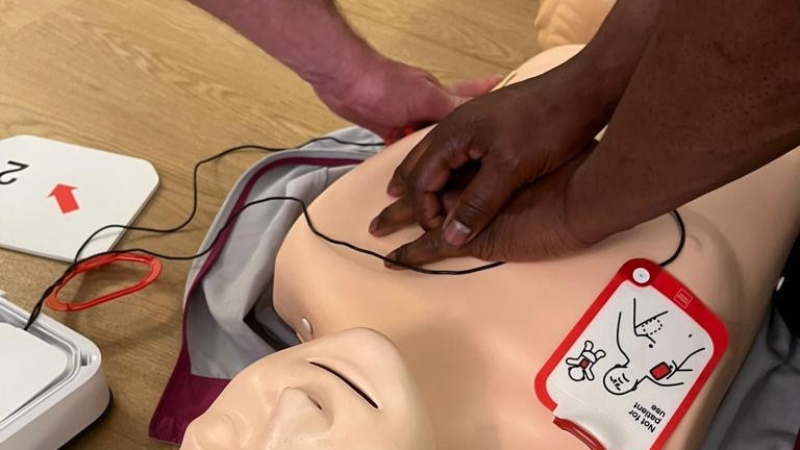
Cardiac arrest occurs when the heart suddenly stops beating, leading to a cessation of blood flow to vital organs, including the brain. In the UK, around 60,000 people have an out-of-hospital cardiac arrest every year. Survival rates from cardiac arrest which happen outside hospital remain worryingly low, with less than one in ten people surviving.
In 2022-23 there were over 3,500 cardiac arrest patients in the North West. The need for CPR education is a high priority for us and our emergency service colleagues as someone in cardiac arrest will die within minutes unless treated immediately with CPR.
For every minute that someone’s in cardiac arrest without receiving CPR and having a defibrillator used on them, their chance of survival decreases by 10%. One of the main reasons for this is the lack of action from bystanders before ambulance crews arrive both giving CPR and using a defibrillator. This is why it’s vitally important that people in the community who witness a cardiac arrest start lifesaving CPR and defibrillation in the crucial minutes before an ambulance crew arrives – it can make the difference between life and death.
Speaking about the importance of life saving defibrillators in cardiac arrest, Regional Community Engagement Lead Mark Evans said: “Defibrillation within five minutes of a cardiac arrest can result in survival rates as high 70%. Defibrillators are not something to be scared of, they can be used by members of the public. They speak to you and take you step by step through what you need to do to help save someone’s life. We believe defibrillators should be as readily available as fire extinguishers and have advocated this for years.
“If you are looking for something ‘extra’ to do to mark this Leap year, taking the time to learn how to perform CPR will greatly improve the survival rates of cardiac arrest and strengthen the chain of survival. If one life is saved it makes learning the skill worthwhile, I would encourage anyone to do this.”